Law > QUESTIONS & ANSWERS > Harvard UniversityERX JUSTICEQuiz 1 - ER22.1x Courseware _ edX - Harvard Justice (All)
Harvard UniversityERX JUSTICEQuiz 1 - ER22.1x Courseware _ edX - Harvard Justice
Document Content and Description Below
8/10/2020 Questions | Questions | ER22.1x Courseware | edX https://courses.edx.org/courses/course-v1:HarvardX+ER22.1x+1T2020/courseware/Q_01/49e0c70a90c84a1da0c98f9b74fe408f/?child=first 1/6 EdX and i... ts Members use cookies and other tracking technologies for performance, analytics, and marketing purposes. By using this website, you accept this use. Learn more about these technologies in the Privacy Policy. × Course Quiz 1 Questi… Questi… Questions Quiz due Aug 22, 2020 02:11 EDT Instructions Quiz 1 consists of 5 multiple choice questions. Be sure to read each question carefully before you select your response. You have one and only one attempt to answer each of the Õve questions. As stated on the syllabus, while you are encouraged, throughout the semester, to discuss the topics of the course with your friends and fellow students, you must do Quiz 1 (as well as quizzes 2-5 and the Õnal exam) on your own, without consulting others; you are also not permitted to share responses to the quiz questions with others or post them in the course discussions. We strongly recommend that students take Quiz 1 after completing the material of lectures 1, 2, 3, and 4, to assess their progress. Good luck! Question 1 1/1 point (graded) According to utilitarianism, the morally right act is the one that … a) … contributes to my own happiness. b) … maximizes my own happiness. Answers are displayed within the problem You have used 1 of 1 attempt Question 2 1/1 point (graded) One key diàerence between Bentham’s and Mill’s respective versions of utilitarianism is that … c) … contributes to the total amount of happiness across all those aàected by the act. d) … maximizes the total amount of happiness across all those aàected by the act. e) … minimizes the total amount of happiness across all those aàected by the act. Explanation a) Incorrect. According to utilitarianism, what matters, morally speaking, is the maximized total amount of happiness across all those aàected by the act and not only my own happiness. b) Incorrect. According to utilitarianism, what matters is the maximized total amount of happiness across all those aàected by the act and not only my own happiness. c) Incorrect. According to utilitarianism, what matters, morally speaking, is that the act under evaluation not only contributes to the total amount of happiness across all those aàected by the act but that it be the one that maximizes aggregate happiness. d) Correct. e) Incorrect. According to utilitarianism, what matters, morally speaking, is not the minimization of aggregate happiness, but rather the maximization of aggregate happiness. Submit a) … Bentham draws a distinction between higher and lower pleasures while Mill does not. b) … Mill believes that the principle of utility applies both to the actions of individuals and government policies while Bentham believes that it applies only to the actions of individuals. Answers are displayed within the problem You have used 1 of 1 attempt Question 3 1/1 point (graded) According to Bentham, … c) … Bentham believes that the principle of utility applies both to the actions of individuals and government policies while Mill believes that it applies only to the actions of individuals. d) … Mill draws a distinction between higher and lower pleasures while Bentham does not. e) … Bentham but not Mill believes that morality requires the maximization of aggregate happiness. Explanation a) Incorrect. Mill draws a distinction between higher and lower pleasures. Bentham believes that there are no qualitative diàerences between pleasures (e.g. the qualitity of the pleasure derived from playing push pin is the same as the quality derived from reading Shakespeare). b) Incorrect. Both Bentham and Mill believe that the principle of utility applies to the acts of individuals and government policies. c) Incorrect. Both Bentham and Mill believe that the principle of utility applies to the acts of individuals and government policies. d) Correct. e) Incorrect. Both Bentham and Mill believe that the right act is the one that, among those acts available, maximizes aggregate happiness. Submit a) … every person has a natural right to life, liberty, and property. b) … every person has an unalienable natural right to life, liberty, and property. Answers are displayed within the problem You have used 1 of 1 attempt Question 4 0/1 point (graded) According to Mill, … c) … the idea of natural rights is essential to understanding the idea of social justice and moral rightness. d) … the idea of natural rights does not make sense. e) … the idea of natural rights is central to utilitarianism. Explanation a) Incorrect. Bentham believes that the idea of natural rights is "nonsense on stilts." b) Incorrect. Bentham believes that the idea of natural rights (alienable or unalienable) is "nonsense on stilts." c) Incorrect. Bentham believes that the idea of natural rights is "nonsense on stilts," and, as such, it cannot be essential to understanding the idea of social justice and moral rightness. d) Correct. e) Incorrect. Bentham believes that the idea of natural rights is "nonsense on stilts," and, as such, cannot be central to utilitarianism. Submit a) … individuals have natural rights. b) … the ideas of justice and individual rights are central to common sense morality and utilitarianism can account for that status. c) … utilitarianism is a doctrine for swine. d) … the idea of maximized aggregate happiness is incoherent. Answers are displayed within the problem You have used 1 of 1 attempt Question 5 1/1 point (graded) In ancient Rome, Christians were fed to the lions in a public spectacle intended to entertain the masses. Which of the following sounds most like something that Mill might say about this situation?: e) … all pleasures are qualitatively equal. Explanation a) Incorrect. Mill does not believe that there is such a thing as natural rights (rights people have by nature). He does, however, believe that the idea of individual rights as a protection from the government and other people is central to common sense morality. And he also believes that utilitarianism can account for individual rights in the sense that granting people certain protections is what maximizes happiness overall. In other words, according to Mill, individual rights are grounded in maximized aggregate happiness rather than in nature. b) Correct. c) Incorrect. Mill introduces the distinction between higher and lower pleasures precisely to show that utilitarianism is a doctrine worthy of human beings. d) Incorrect. Mill believes that the idea of maximized aggregate happiness is central to understanding morality. e) Inccorrect. Mill believes that there are higher and lower pleasures. Submit a) Since all pleasures are of the same quality, all that matters, morally speaking, is the quantity of pleasure that the crowd derives from the spectacle minus the quantity of pain experienced by the Christians who are being fed to the lions. b) The principle of utility is a good theory in most situations. But in extreme situations like this, we need to do what is moral rather than what the principle of utility tells us to do. For this reason, it is wrong to feed the Christians to the lions. 8/10/2020 Questions | Questions | ER22.1x Courseware | edX https://courses.edx.org/courses/course-v1:HarvardX+ER22.1x+1T2020/courseware/Q_01/49e0c70a90c84a1da0c98f9b74fe408f/?child=first 6/6 © All Rights Reserved Answers are displayed within the problem You have used 1 of 1 attempt c) Some pleasures, because they are of a low quality, do not deserve to be given equal weight or priority when deciding what to do. The pleasure obtained from watching someone being fed to a lion is likely to be one such pleasure. So the pain suàered by the Christians should factor into my deliberations more heavily than the pleasure enjoyed by the spectators. d) b and c. e) a and c. Explanation a) Incorrect. Mill believes that some pleasures, because they are of a low quality, do not deserve to be given equal weight or priority when deciding what to do. The pleasure obtained from watching someone being fed to a lion is likely to be one such pleasure. So the pain suàered by the Christians should factor into my deliberations more heavily than the pleasure enjoyed by the spectators. b) Incorrect. According to utilitarians, including Mill, there is no standard of morality that is independent of the principle of utility. In other words, to do what is moral is to do what the principle of utility prescribes, namely to maximize aggregate happiness. To say that "one needs to do what is moral rather than what the principle of utility tells you to do" is nonsensical, as far as utilitarians, including Mill, are concerned. c) Correct. d) Incorrect. Mill believes c) but not b). e) Incorrect. Mill believes c) but not a). Submit [Show More]
Last updated: 1 year ago
Preview 1 out of 6 pages
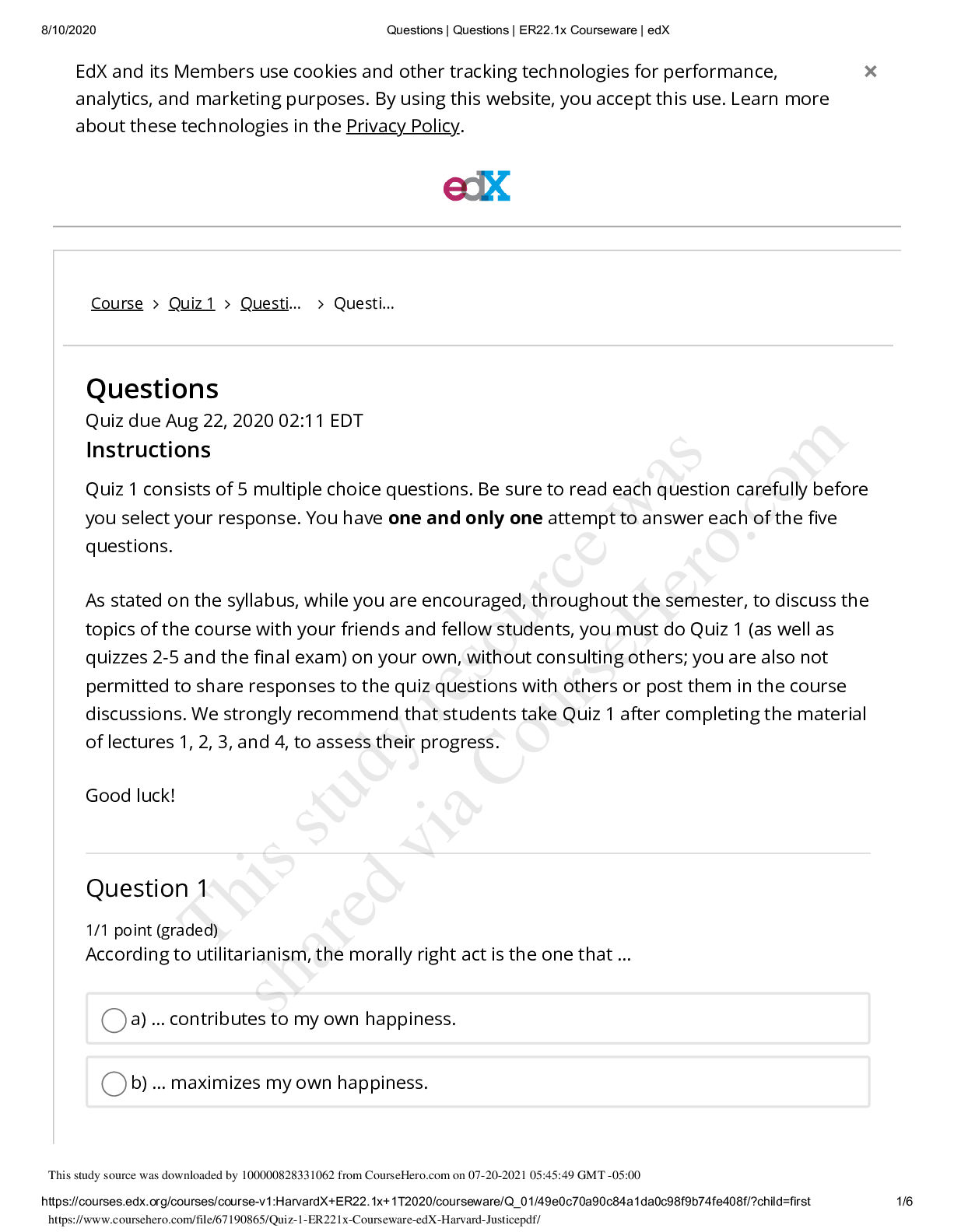
Reviews( 0 )
Document information
Connected school, study & course
About the document
Uploaded On
Jul 20, 2021
Number of pages
6
Written in
Additional information
This document has been written for:
Uploaded
Jul 20, 2021
Downloads
0
Views
137


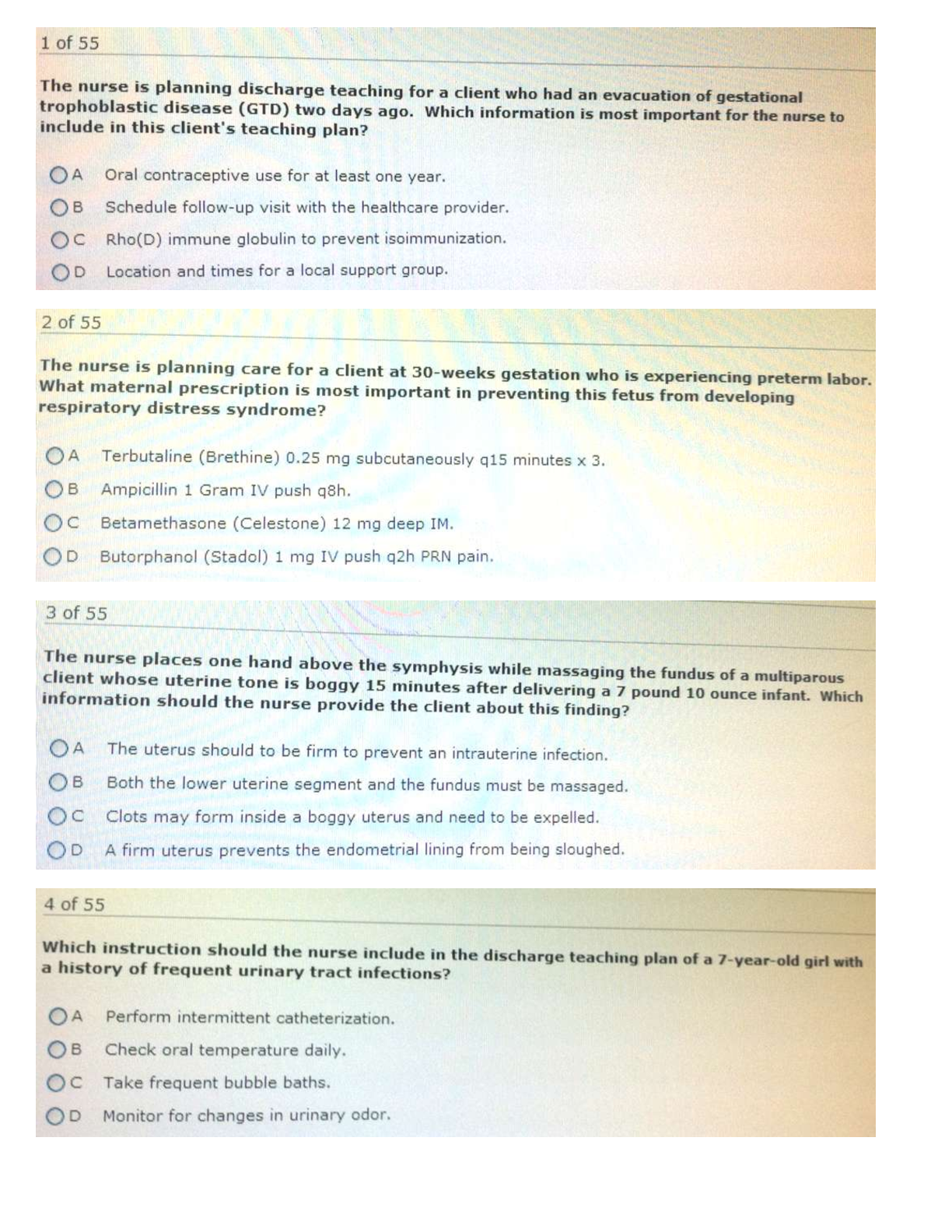
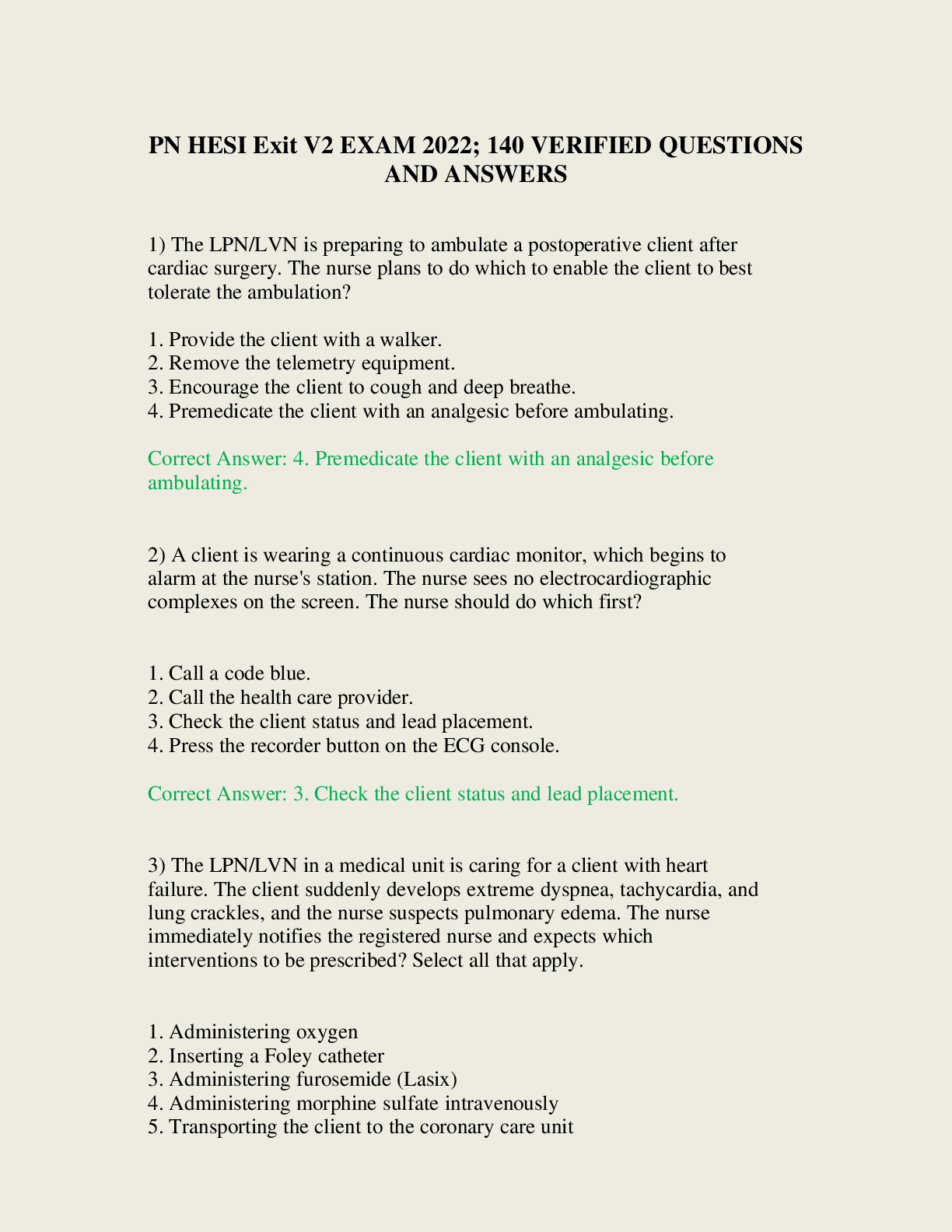
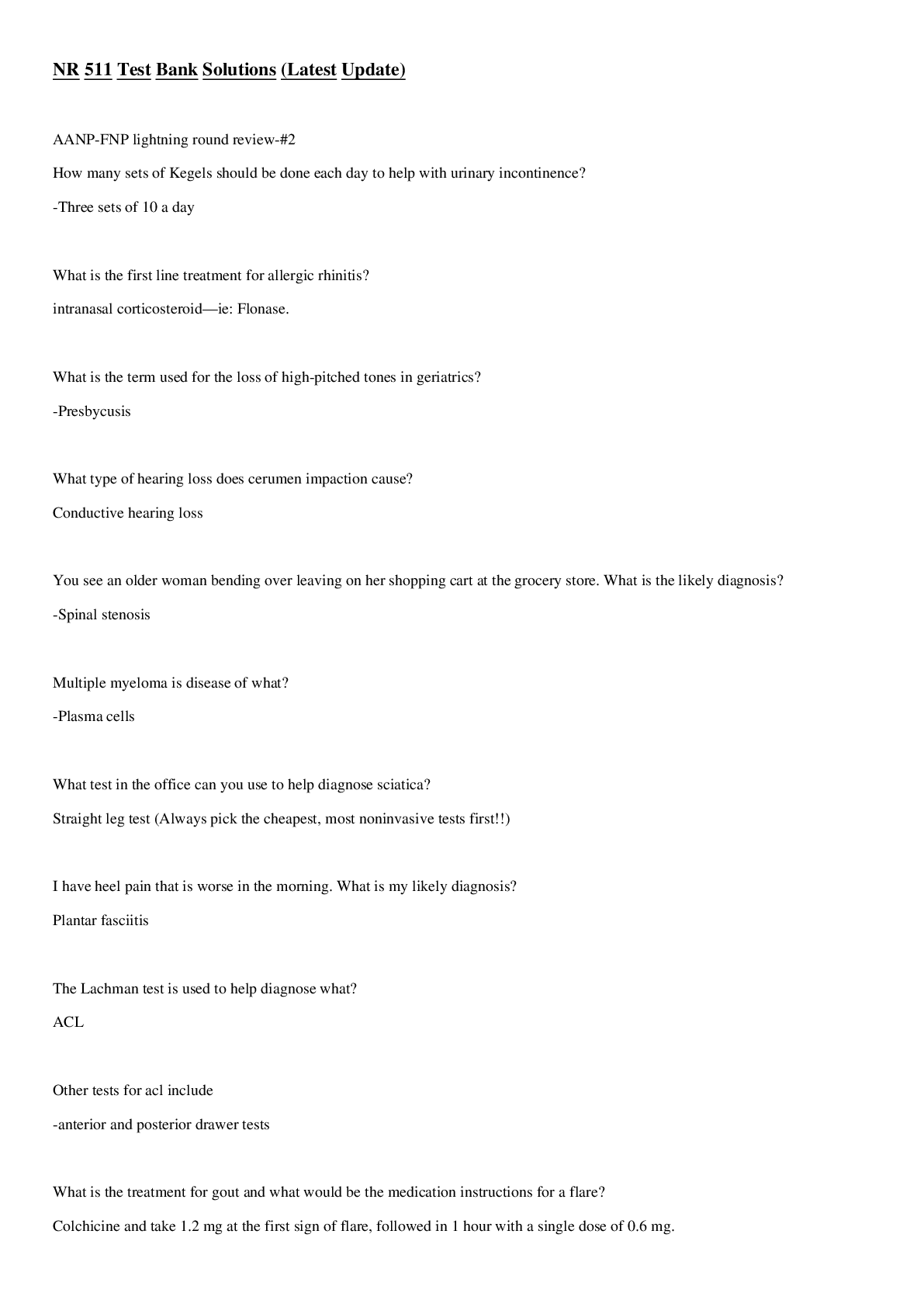

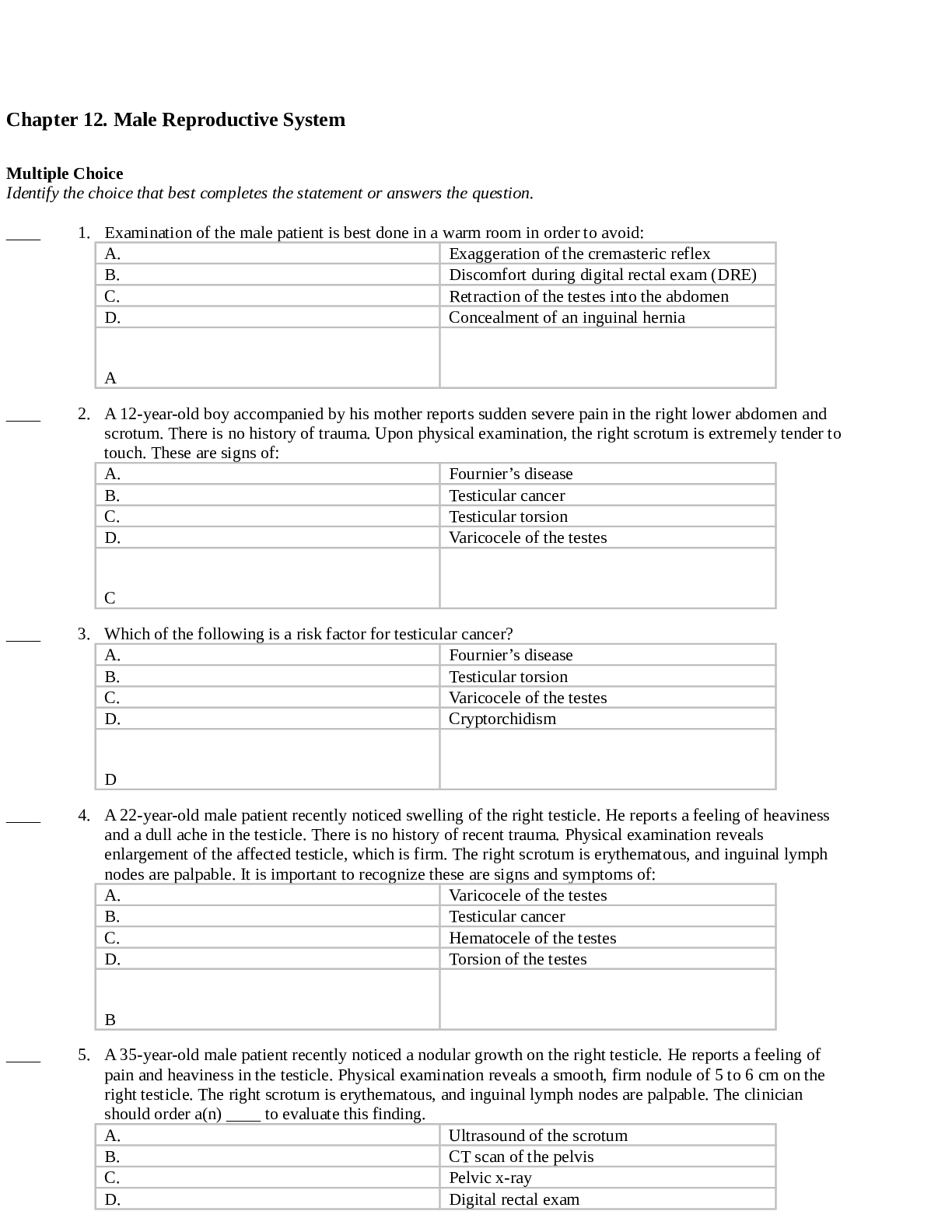
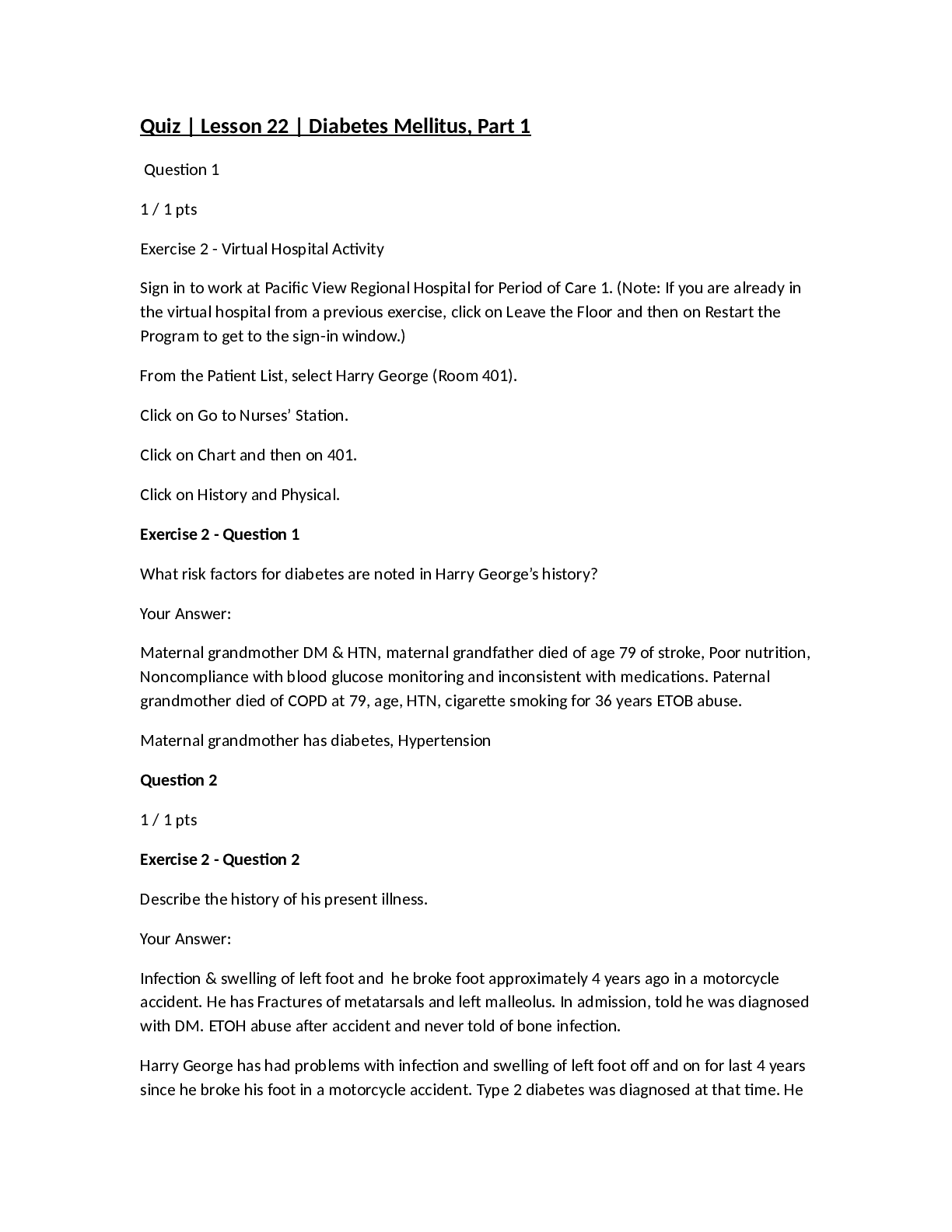
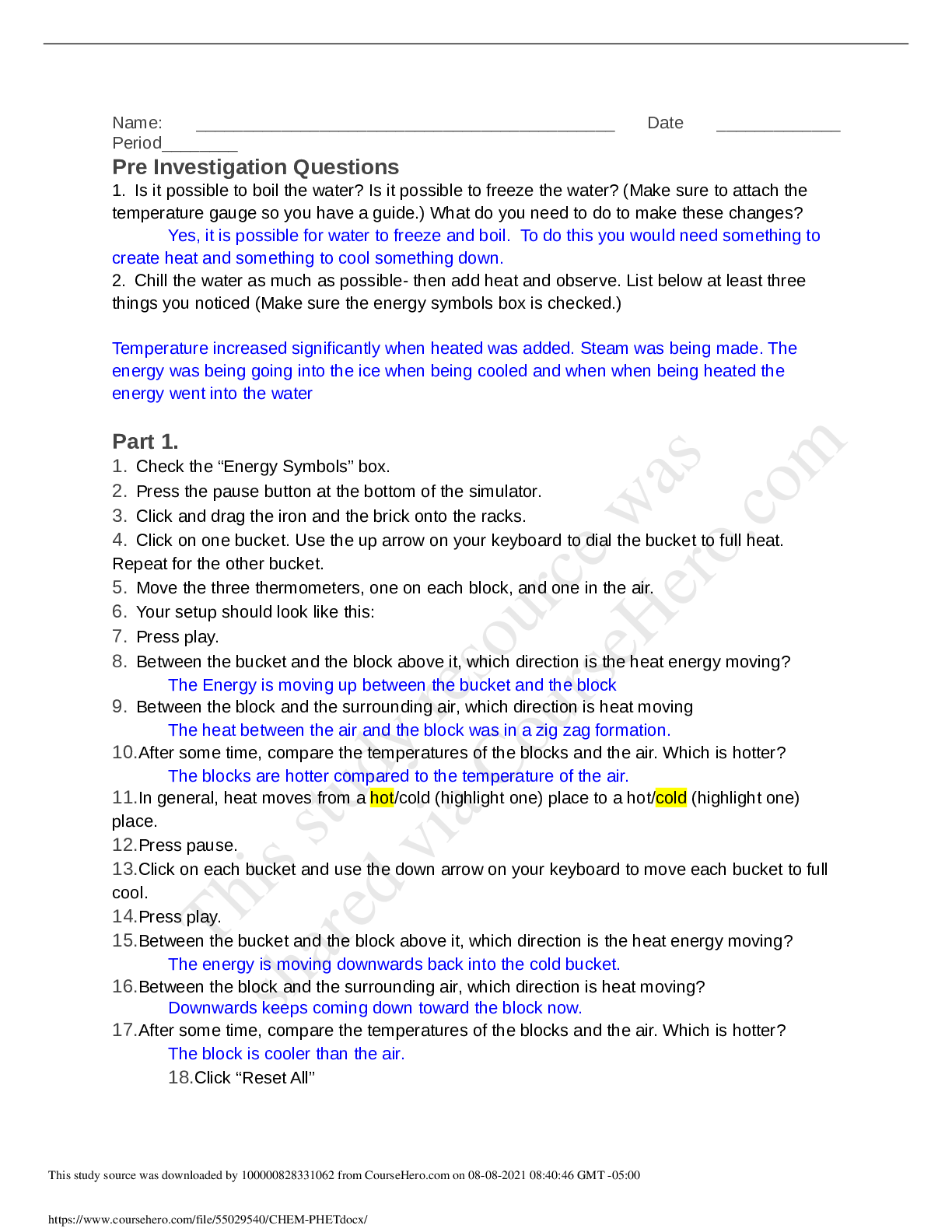


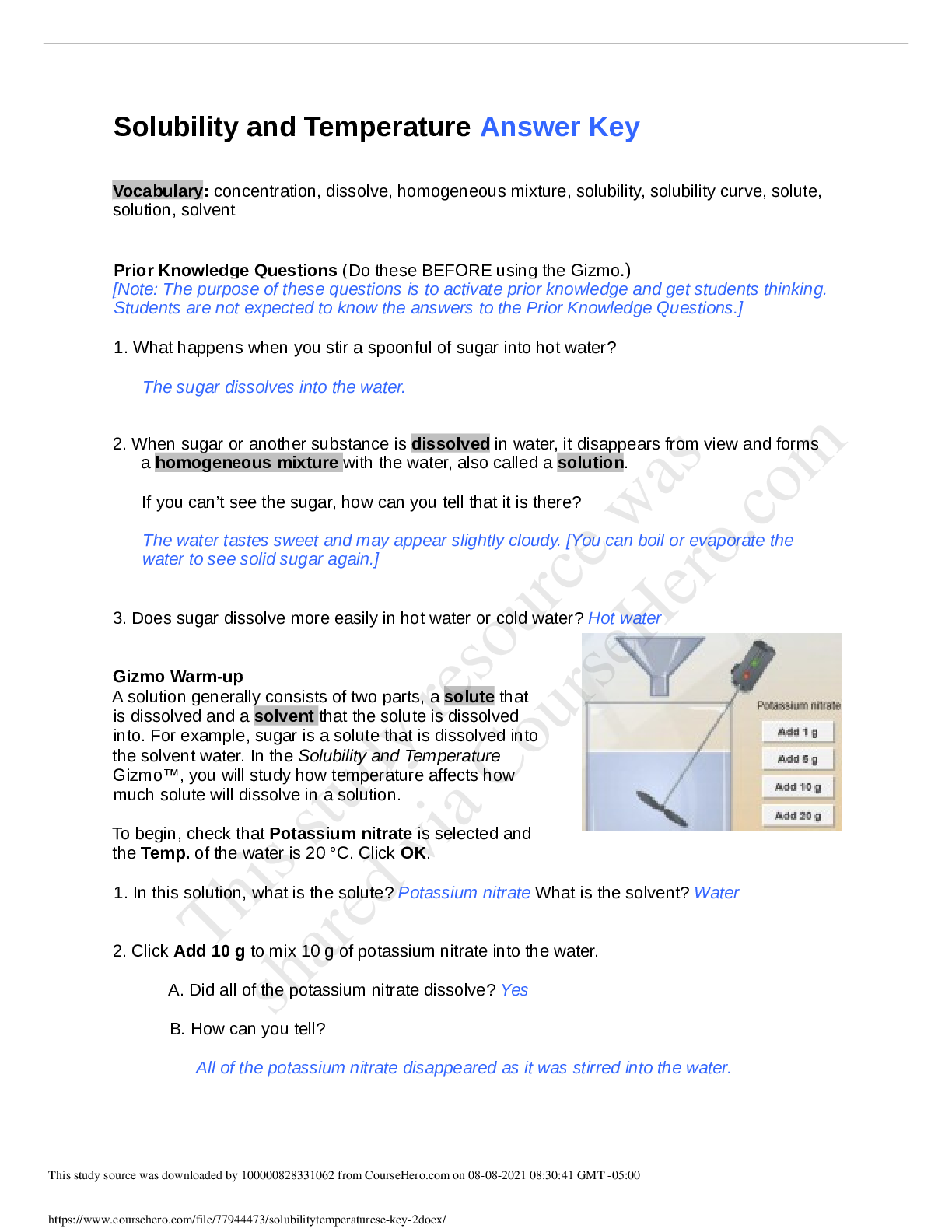


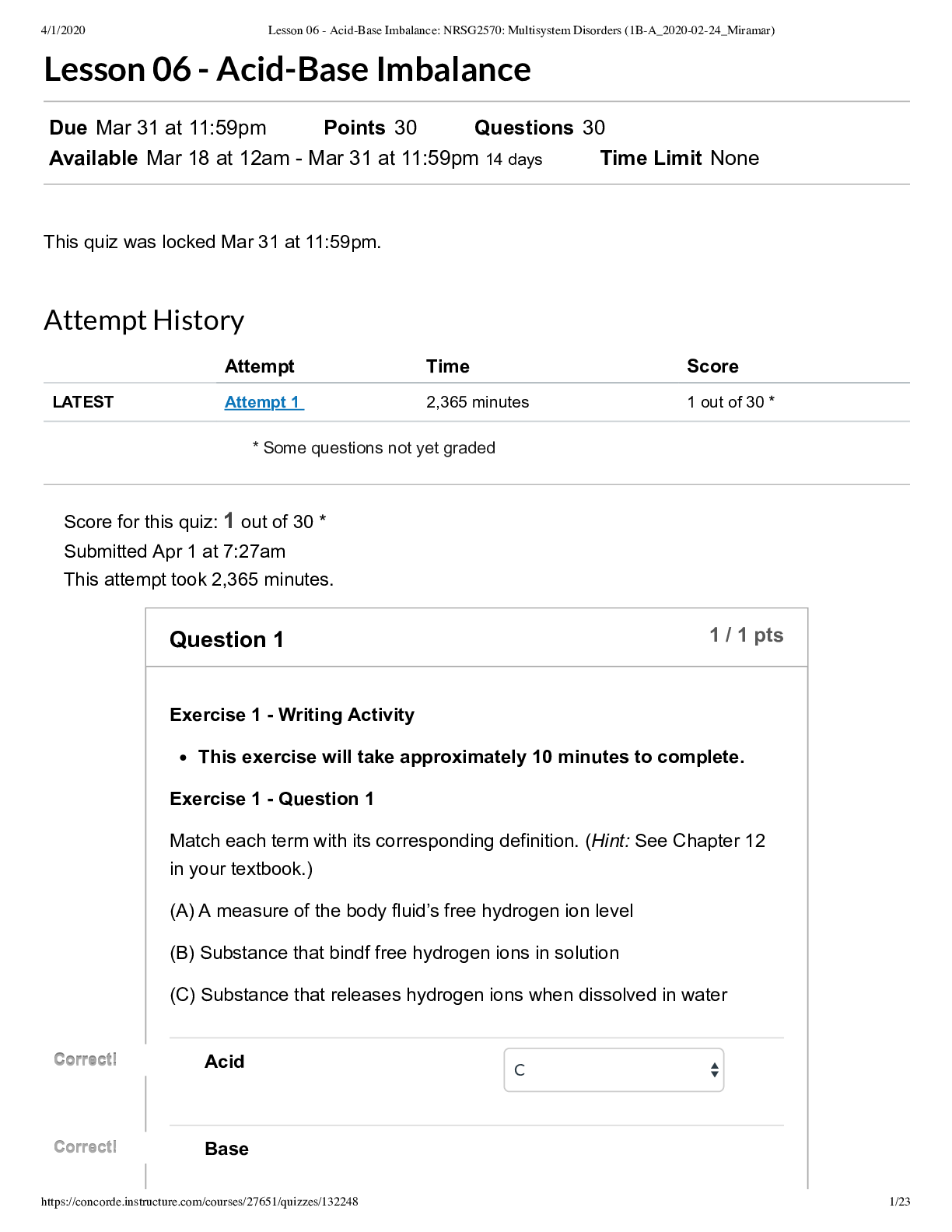
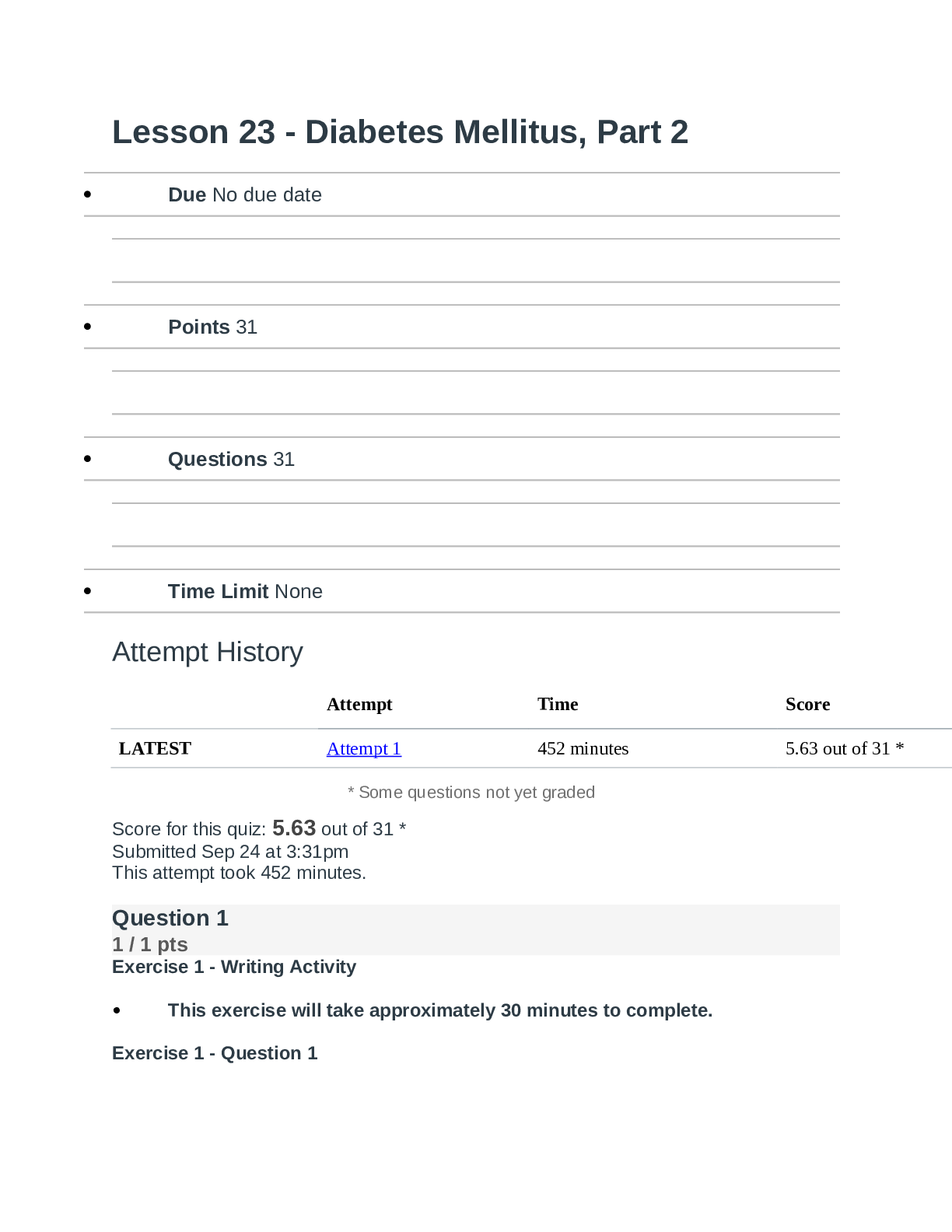


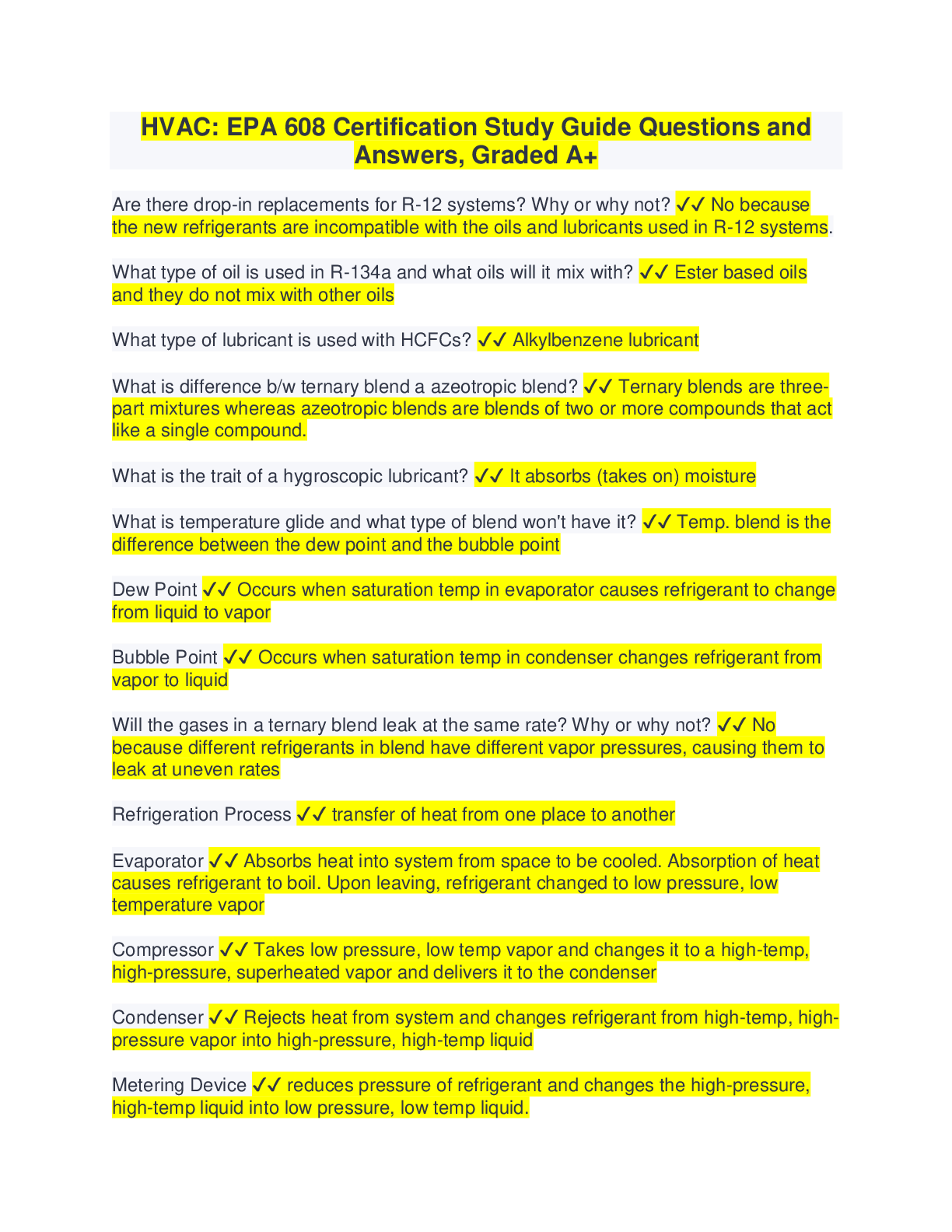

.png)

.png)
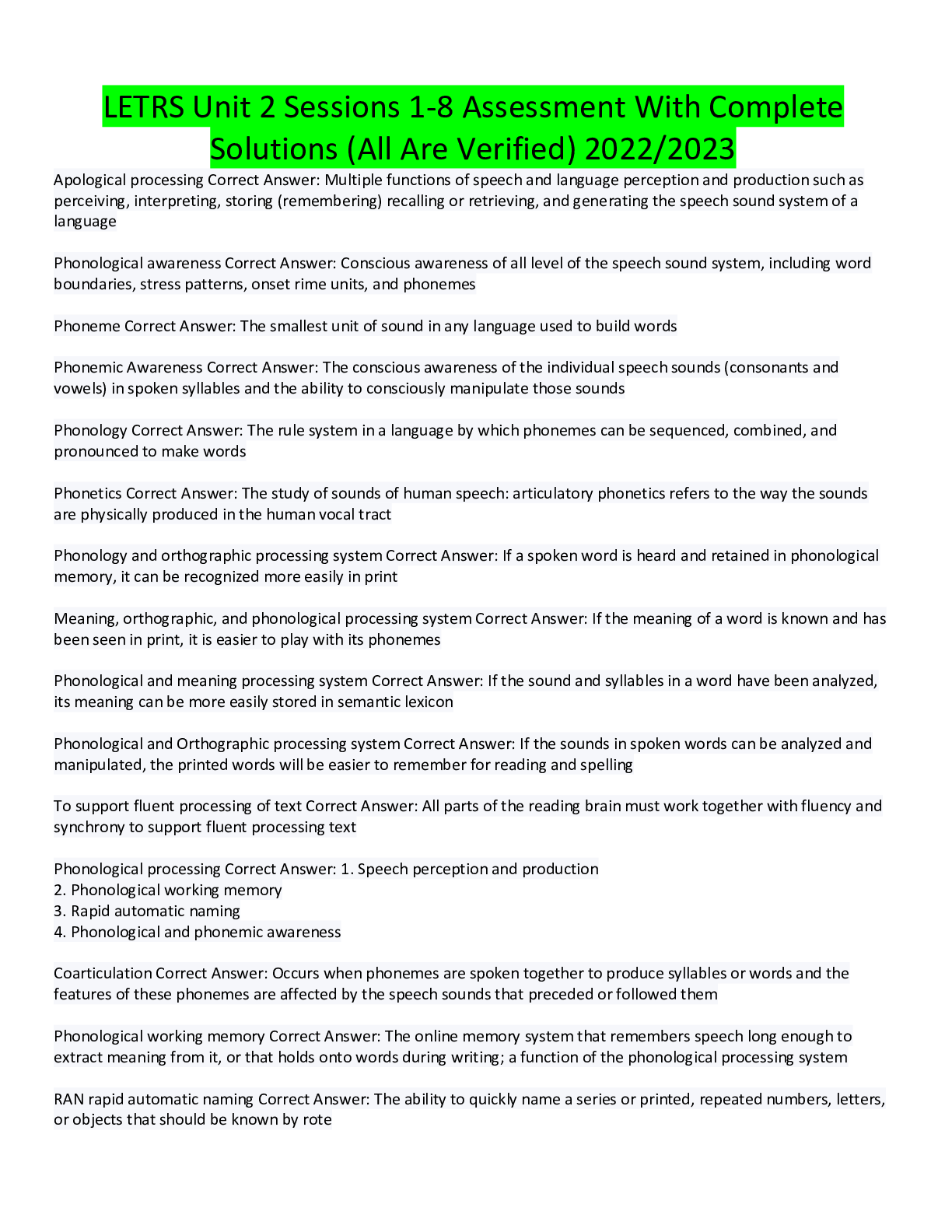
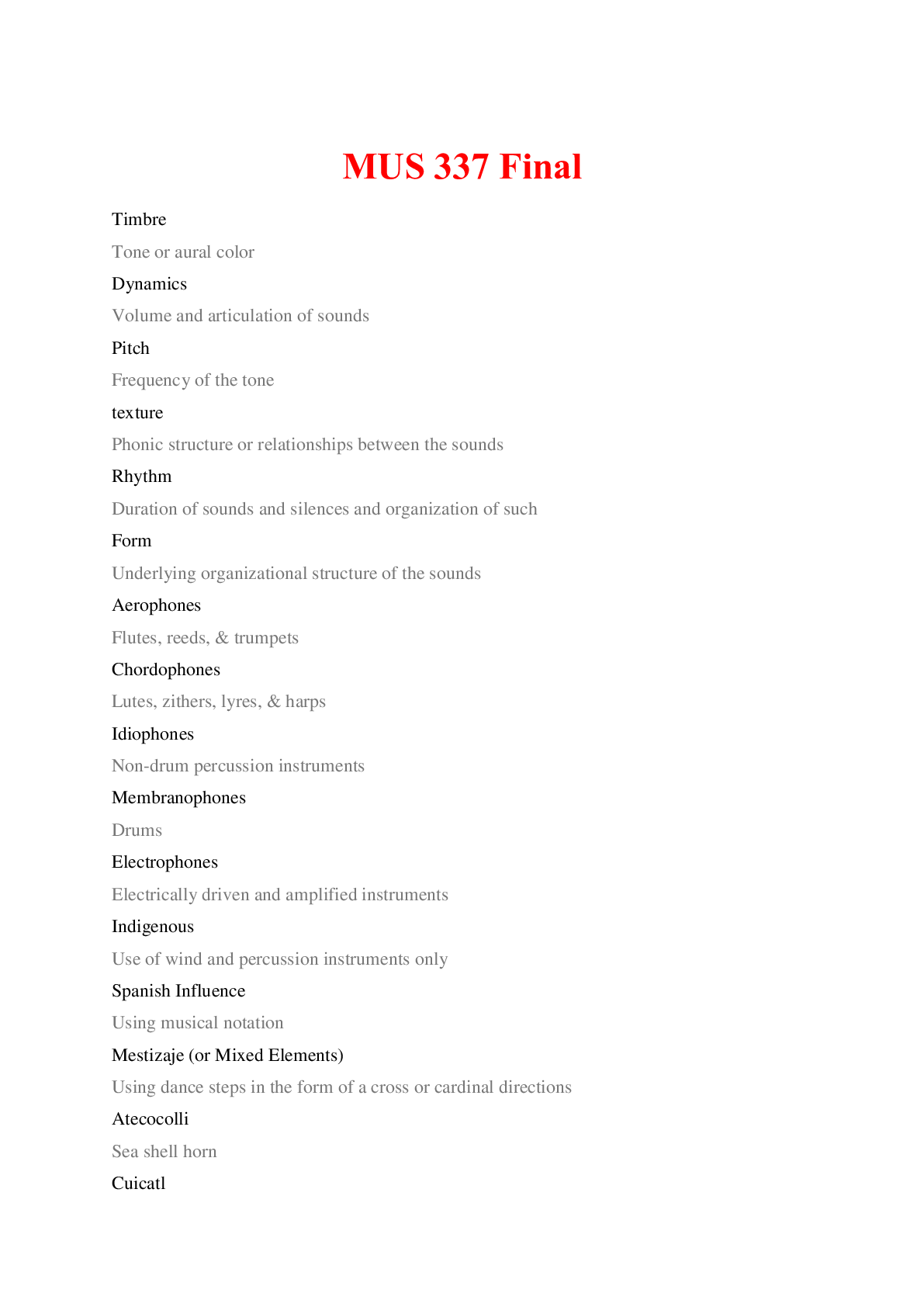
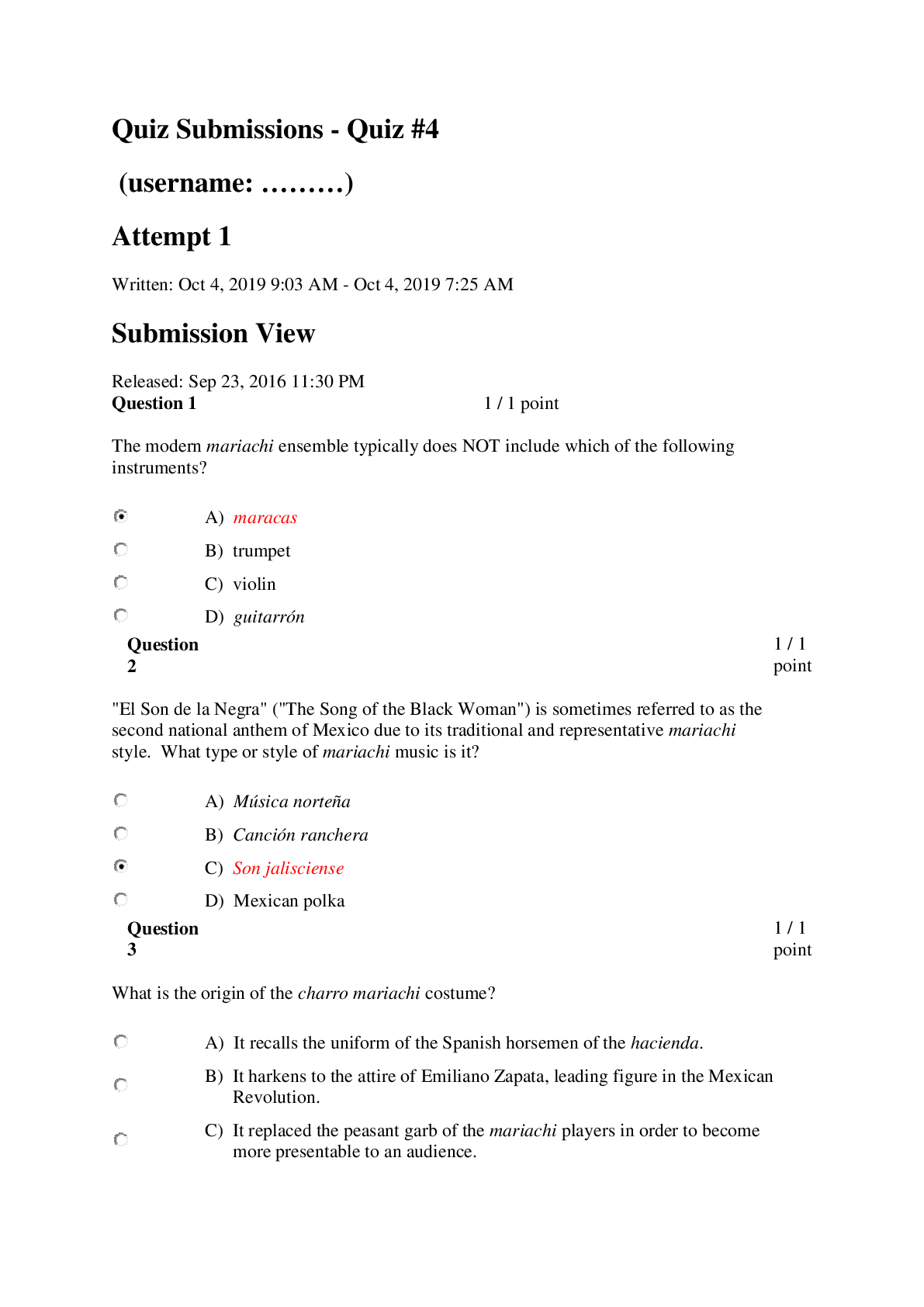
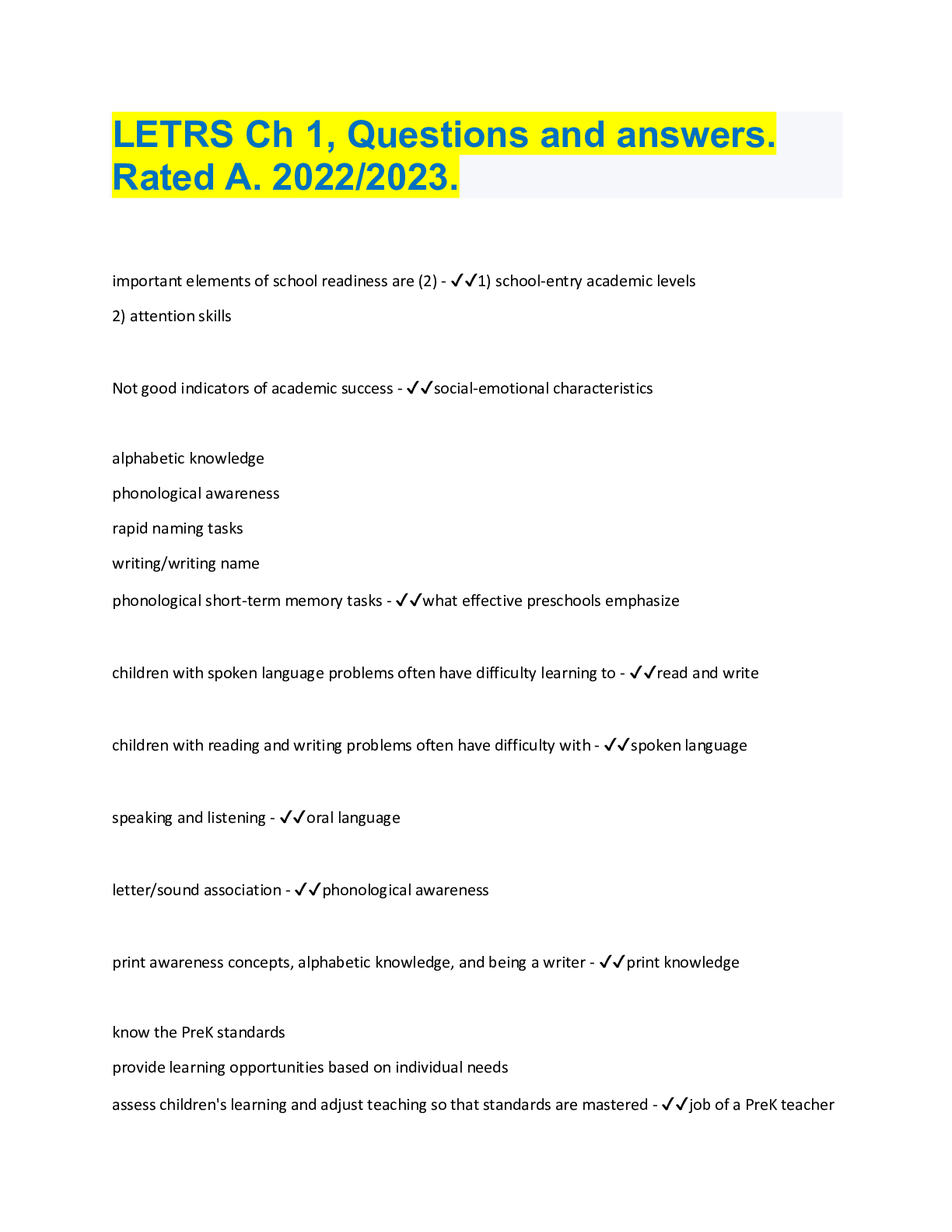
.png)
.png)

.png)

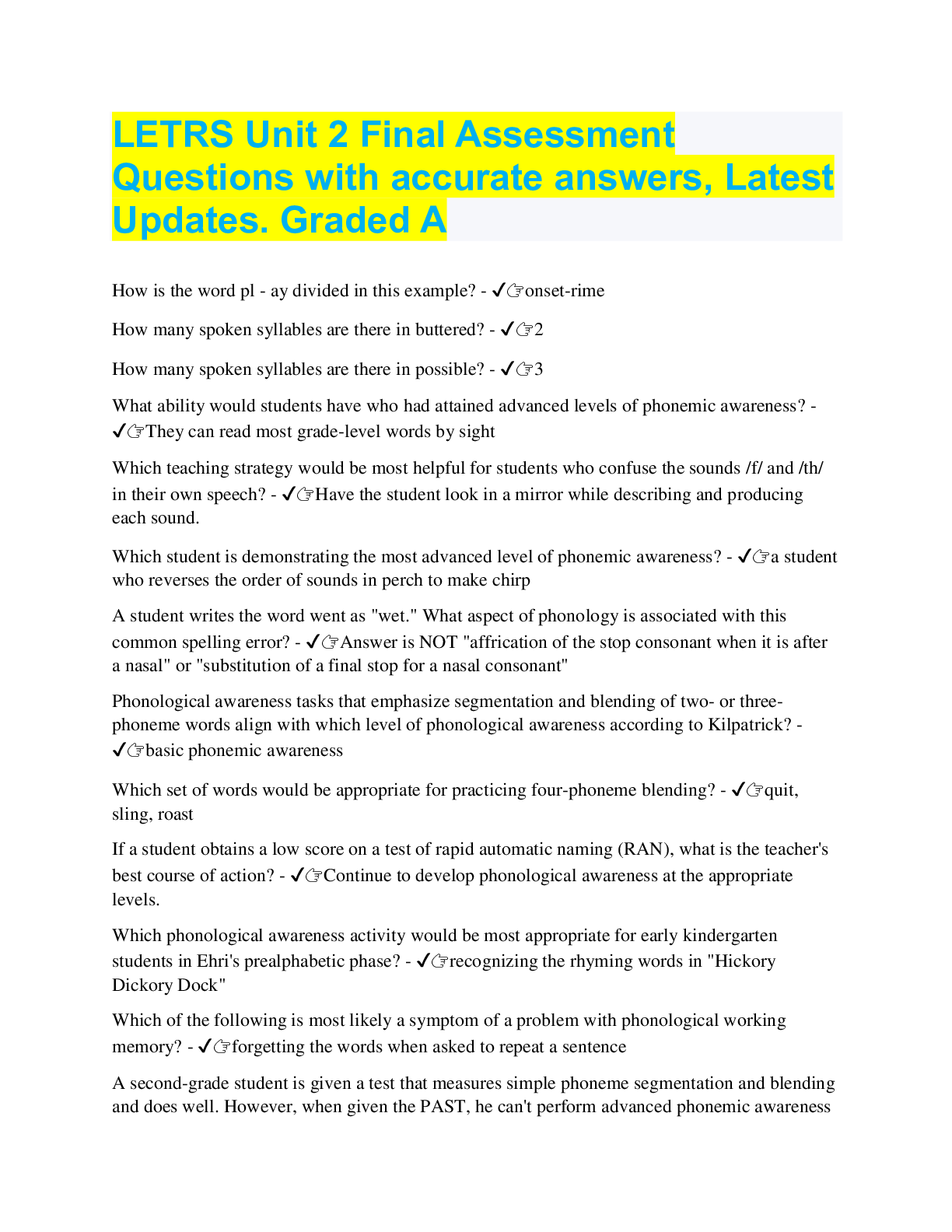

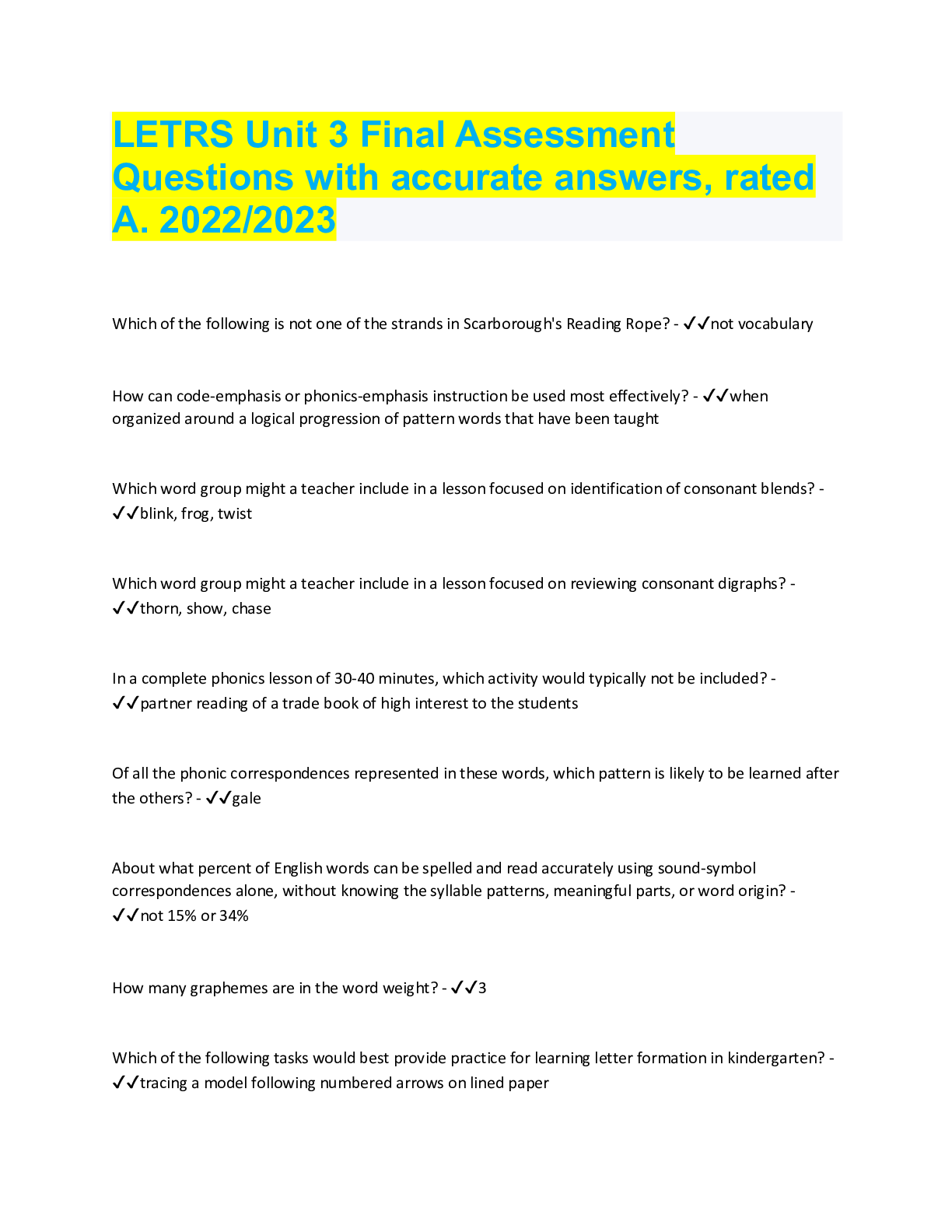
.png)

